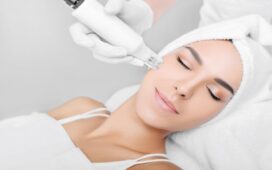How worse is alcoholism and addiction in South Carolina? The figures are troubling:
- According to one research, over one year, 266,000 residents — roughly 5 percent of the state’s population — have an alcohol addiction or alcohol abuse problem.Some may need admission at rehabs in South Carolina.
- In 2017, South Carolina had the second-highest number of DUI-related fatalities in the country.
- At 15.5 people per 100,000 residents, the rate of opioid overdose-related deaths is higher than the national average, but the massive increase in opioid deaths occurred due to synthetic opioids such as fentanyl. The number of deaths increased by nearly ten times from 46 in 2012 to 2017, 404.
- According to the South Carolina Department of Alcohol and Other Drug Abuse Services, drinking and driving by high school students in the Palmetto State skyrocketed by 40 percent from 2016 to 2017.
Those figures are grim and indicative of a severe health problem. South Carolina isn’t an exception, of course, but according to the South Carolina DAODAS, there was a 21 percent increase from 2016 to 2017 in-state residents ages 26 and older who needed treatment for illicit drug use but didn’t receive it. The increase is relative to admission Addiction treatment centers in South Carolina.
For those suffering from addiction, there’s nothing more discouraging than needing help but being unable to obtain it. Some of those barriers are financial, while others may struggle to find competent treatment programs in South Carolina. But what if they expanded their search? What if they looked beyond their state to one nearby — say, East Tennessee?

Drug and alcohol treatment in South Carolina
As one of the best rehab centers in the nation, United Recovery Project offers the sort of expert care that rivals most major medical institutions. With more than 250 staff members, our objective is to provide a pleasant environment that provides healing and hope during what for many individuals is the most challenging crisis of their lives. Our treatment services are developed to educate, inform, rehabilitate and transform so that those who come to us with a substance abuse problem understand that they’re not bad people trying to become good; they’re sick people who need to get well.
The Initial step along that journey begins in Medical Detox, where around-the-clock guidance and comfort medication keep patients as contented as possible during the process through which drugs and toxins are purged from their systems. After a three- to five-day detox stay, patients move into one of our four residential treatment programs.









